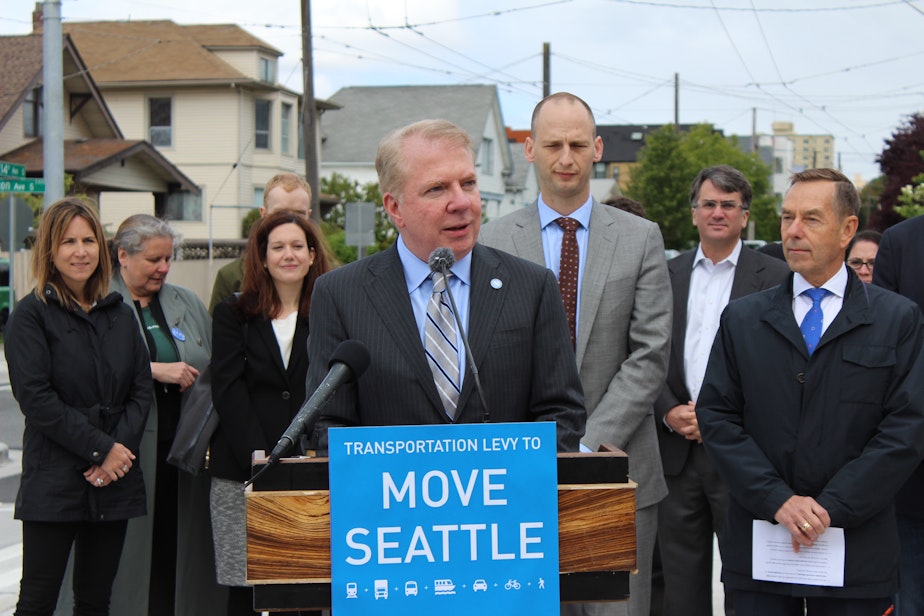Seattle's $900 Million Transportation Package Just Got Bigger

Seattle Mayor Ed Murray announced Wednesday he’s making changes to the nearly billion-dollar transportation package that will go to voters in November.
He wants to spend more money than he had originally had proposed: The $900 million proposal he announced in March has now grown to $930 million.
The massive plan, which includes dozens of projects like sidewalk construction, bridge retrofits and road improvements for bicycles and transit, would be paid for with a property tax levy. It would cost the average home owner about $275 a year, more than double the current Bridging the Gap transportation levy, which is about to expire.
Over the past several weeks, city officials have held a series of public meetings and collected thousands of comments on the proposal. The overriding theme has been that the city should do more, especially to make the roads safer and to ensure access to transit.
"What we hear from folks when we were out there in neighborhood after neighborhood is, 'You are not doing enough,'” Murray said. “So I think we can justify it when we have a public that said that we have waited too long and we need to do something."
Sponsored
Under the revised plan, more money will go to new sidewalk and pedestrian improvements and for road projects meant to make it easier for buses to travel through traffic.
Cathy Tuttle from the group Seattle Neighborhood Greenways had been advocating for more funding for pedestrian improvements around low-income schools. The revised plan is a big improvement over the original, she said, but her group will continue to advocate for even more.
"We’re hoping to have a little bit more for pedestrian safety, for people who walk and bike. We really need to focus on that because we have this opportunity over the next 10 years to transform this city into a very livable place for people,” she said.
The additional $30 million will not come from property taxes. According to Murray, it will come from tax revenue from new building construction. That money would normally go into the city's general fund, but under this plan it would be earmarked for transportation.
The proposal now goes to the City Council. If approved it will be on the ballot in November.

